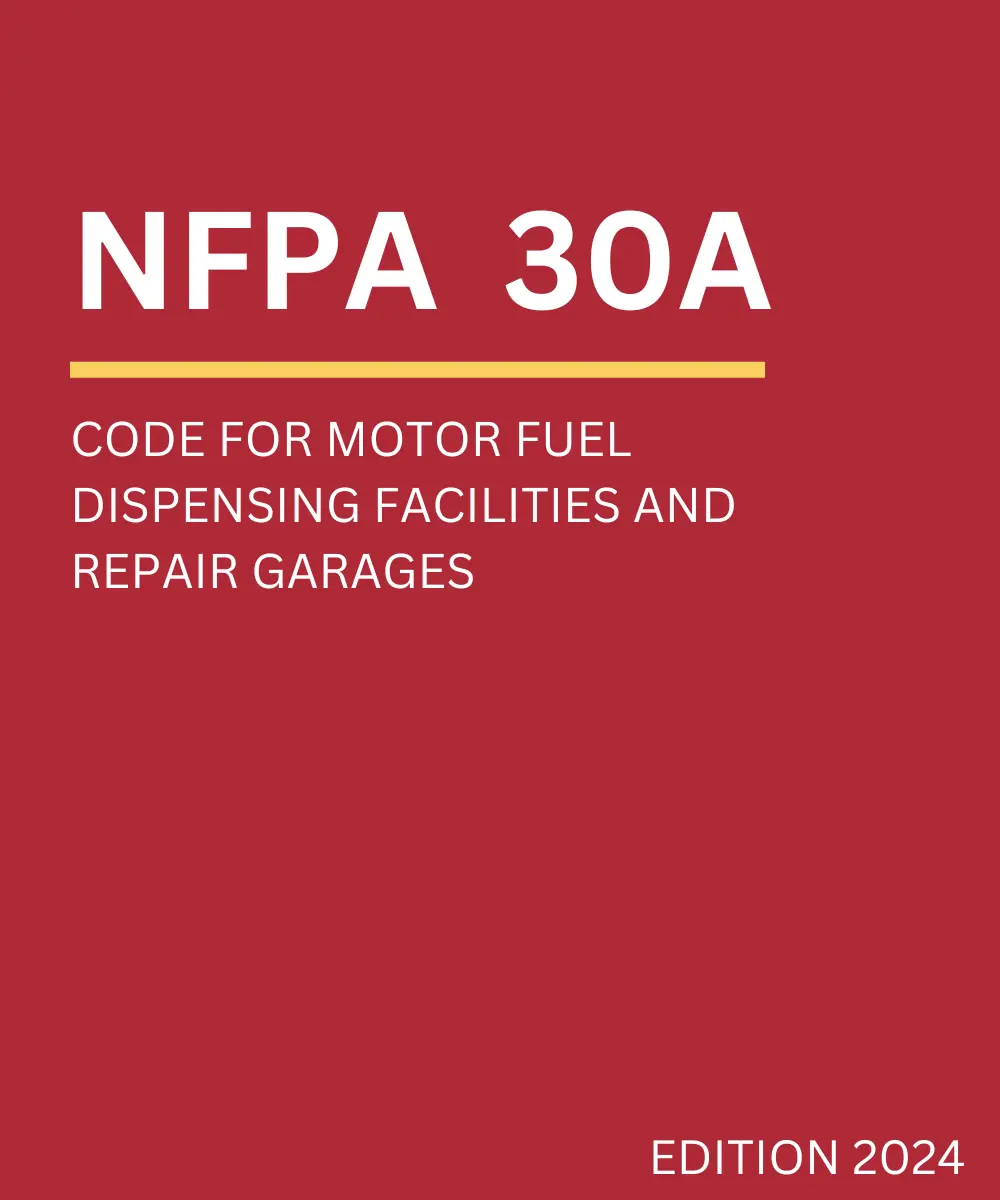
NFPA 30A: Code for Motor Fuel Dispensing Facilities and Repair Garages
It mitigates fire and explosion risks by stipulating safeguards for dispensing both liquid and gaseous motor fuels into automotive and marine fuel tanks, promoting safety in fueling operations.
Current Version: 2024
Revision Cycle:
Annual 2026
Next Edition: 2027
Status: Active
Introduction
NFPA 30A, the Code for Motor Fuel Dispensing Facilities and Repair Garages, outlines the necessary safety standards for the operation of motor fuel dispensing and vehicle repair facilities. The 2024 edition introduces key updates to address technological advancements, environmental safety concerns, and the evolving landscape of fuel handling and storage.
Key Changes in the Latest Edition
- Revised Fuel Dispensing Guidelines: The 2024 edition includes updated specifications for dispensing systems, emphasizing safety features to reduce the risk of spills and vapor emissions. New technologies, such as automatic shut-off mechanisms and vapor recovery systems, are now included as essential components in fuel dispensing operations.
- Environmental Impact Considerations: There is an increased focus on minimizing the environmental impact of motor fuel dispensing activities, with updated guidelines for spill control, waste management, and tank maintenance practices that align with best practices in environmental protection.
- Enhanced Fire Protection Systems: The updated code provides more detailed requirements for the installation and maintenance of fire suppression systems, particularly in areas with fuel storage or dispensing activities. These changes aim to improve response times and prevent fire hazards associated with fuel dispensing operations.
- Safety Practices for Repair Garages: NFPA 30A: 2024 introduces new recommendations for the safe handling of hazardous materials in repair garages, including updated guidelines for ventilation systems, fire extinguishing systems, and the safe storage of flammable liquids used in vehicle maintenance.
- Emergency Response Planning: There is an emphasis on better emergency preparedness protocols, including the integration of automated alarm systems and emergency shut-off valves that can be activated in case of an emergency, ensuring quicker responses to incidents such as spills or fires.
Notable Features of the Current Version
- Specific Fuel Dispensing Safety: Updated safety measures to reduce spills and vapor emissions, including the integration of modern dispensing technologies.
- Environmental Safety Standards: Stronger emphasis on environmental protections related to fuel storage and dispensing operations.
- Advanced Fire Suppression Systems: More detailed requirements for the installation of fire suppression systems in hazardous areas.
- Improved Emergency Protocols: Clearer standards for emergency systems and response planning, including automatic shut-off and alarm mechanisms.
Practical Implications
For businesses operating motor fuel dispensing facilities or repair garages, compliance with the 2024 edition of NFPA 30A is essential for minimizing risk, ensuring environmental protection, and improving emergency preparedness. This edition also ensures that operations align with the latest technological advancements and industry standards.
Conclusion
The 2024 edition of NFPA 30A introduces crucial updates that significantly enhance safety protocols in motor fuel dispensing and repair garage operations. These changes provide more robust safeguards against environmental hazards, fire risks, and other safety concerns, helping facilities maintain compliance with industry standards.
Access NFPA 30A Now!
Refer to the official NFPA 30A document or consult a certified fire safety professional for comprehensive guidance and to ensure compliance with the 2024 edition.
Book a free demo
Digitalize your Inspections with ZenFire
- Faster Inspection
- Deficiency Reporting
- Proposals
Everything you need in one Software.
Company
Support and Services
- (206) 456-8988
- 236 W 27th st Floor 12, New York, NY 10001, United States
- 299 Fremont St APT TH313, San Francisco, CA 94105
- A-302, Nyati Tech Park, New Kalyani Nagar, Wadgaon Sheri, Pune-411014
- hello@zentrades.pro
© 2025 ZenTrades Inc

